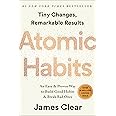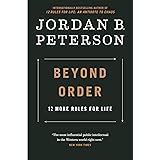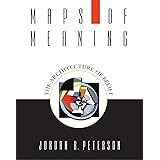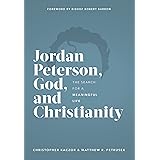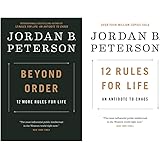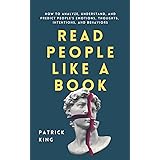
Enjoy fast, free delivery, exclusive deals, and award-winning movies & TV shows with Prime
Try Prime
and start saving today with fast, free delivery
Amazon Prime includes:
Fast, FREE Delivery is available to Prime members. To join, select "Try Amazon Prime and start saving today with Fast, FREE Delivery" below the Add to Cart button.
Amazon Prime members enjoy:- Cardmembers earn 5% Back at Amazon.com with a Prime Credit Card.
- Unlimited Free Two-Day Delivery
- Streaming of thousands of movies and TV shows with limited ads on Prime Video.
- A Kindle book to borrow for free each month - with no due dates
- Listen to over 2 million songs and hundreds of playlists
- Unlimited photo storage with anywhere access
Important: Your credit card will NOT be charged when you start your free trial or if you cancel during the trial period. If you're happy with Amazon Prime, do nothing. At the end of the free trial, your membership will automatically upgrade to a monthly membership.
Buy new:
-47% $15.94$15.94
Ships from: Amazon.com Sold by: Amazon.com
Save with Used - Acceptable
$9.64$9.64
Ships from: Amazon Sold by: Goodwill Good Skills

Download the free Kindle app and start reading Kindle books instantly on your smartphone, tablet, or computer - no Kindle device required.
Read instantly on your browser with Kindle for Web.
Using your mobile phone camera - scan the code below and download the Kindle app.

OK
Image Unavailable
Color:
-

-
-
- To view this video download Flash Player
 Audible sample Sample
Audible sample Sample 


12 Rules for Life: An Antidote to Chaos Hardcover – January 23, 2018
Purchase options and add-ons
#1 INTERNATIONAL BESTSELLER
What does everyone in the modern world need to know?
Renowned psychologist Jordan B. Peterson's answer to this most difficult of questions uniquely combines the hard-won truths of ancient tradition with the stunning revelations of cutting-edge scientific research.
Humorous, surprising and informative, Dr. Peterson tells us why skateboarding boys and girls must be left alone, what terrible fate awaits those who criticize too easily, and why you should always pet a cat when you meet one on the street.
What does the nervous system of the lowly lobster have to tell us about standing up straight (with our shoulders back) and about success in life? Why did ancient Egyptians worship the capacity to pay careful attention as the highest of gods? What dreadful paths do people tread when they become resentful, arrogant and vengeful?
Dr. Peterson journeys broadly, discussing discipline, freedom, adventure and responsibility, distilling the world's wisdom into 12 practical and profound rules for life. 12 Rules for Life shatters the modern commonplaces of science, faith and human nature, while transforming and ennobling the mind and spirit of its readers.
- Print length409 pages
- LanguageEnglish
- PublisherRandom House Canada
- Publication dateJanuary 23, 2018
- Dimensions6.6 x 1.4 x 9.3 inches
- ISBN-100345816021
- ISBN-13978-0345816023
The Amazon Book Review
Book recommendations, author interviews, editors' picks, and more. Read it now
Frequently bought together

Similar items that may deliver to you quickly
 So, attend carefully to your posture. Quit drooping and hunching around. Speak your mind. Put your desires forward, as if you had a right to them—at least the same right as others. Walk tall and gaze forthrightly ahead. Dare to be dangerous. Encourage the serotonin to flow plentifully through the neural pathways desperate for its calming influence.Highlighted by 33,627 Kindle readers
So, attend carefully to your posture. Quit drooping and hunching around. Speak your mind. Put your desires forward, as if you had a right to them—at least the same right as others. Walk tall and gaze forthrightly ahead. Dare to be dangerous. Encourage the serotonin to flow plentifully through the neural pathways desperate for its calming influence.Highlighted by 33,627 Kindle readers There is very little difference between the capacity for mayhem and destruction, integrated, and strength of character. This is one of the most difficult lessons of life.Highlighted by 31,216 Kindle readers
There is very little difference between the capacity for mayhem and destruction, integrated, and strength of character. This is one of the most difficult lessons of life.Highlighted by 31,216 Kindle readers It is far better to render Beings in your care competent than to protect them.Highlighted by 18,922 Kindle readers
It is far better to render Beings in your care competent than to protect them.Highlighted by 18,922 Kindle readers Because these really are rules. And the foremost rule is that you must take responsibility for your own life. Period.Highlighted by 14,165 Kindle readers
Because these really are rules. And the foremost rule is that you must take responsibility for your own life. Period.Highlighted by 14,165 Kindle readers
Editorial Reviews
Review
“Jordan Peterson, has become one of the best-known Canadians of this generation. In the intellectual category, he’s easily the largest international phenomenon since Marshall McLuhan. . . . By combining knowledge of the past with a full-hearted optimism and a generous attitude toward his readers and listeners, Peterson generates an impressive level of intellectual firepower.” —Robert Fulford, National Post
“Like the best intellectual polymaths, Peterson invites his readers to embark on their own intellectual, spiritual and ideological journeys into the many topics and disciplines he touches on. It’s a counter-intuitive strategy for a population hooked on the instant gratification of ideological conformity and social media ‘likes,’ but if Peterson is right, you have nothing to lose but your own misery.” —Toronto Star
“In a different intellectual league. . . . Peterson can take the most difficult ideas and make them entertaining. This may be why his YouTube videos have had 35 million views. He is fast becoming the closest that academia has to a rock star.” —The Observer
“Grow up and man up is the message from this rock-star psychologist. . . . [A] hardline self-help manual of self-reliance, good behaviour, self-betterment and individualism that probably reflects his childhood in rural Canada in the 1960s. As with all self-help manuals, there’s always a kernel of truth. Formerly a Harvard professor, now at the University of Toronto, Peterson retains that whiff of cowboy philosophy—one essay is a homily on doing one thing every day to improve yourself. Another, on bringing up little children to behave, is excellent…. [Peterson] twirls ideas around like a magician.” —Melanie Reid, The Times
“You don’t have to agree with [Peterson’s politics] to like this book for, once you discard the self-help label, it becomes fascinating. Peterson is brilliant on many subjects. . . . So what we have here is a baggy, aggressive, in-your-face, get-real book that, ultimately, is an attempt to lead us back to what Peterson sees as the true, the beautiful and the good—i.e. God. In the highest possible sense of the term, I suppose it is a self-help book. . . . Either way, it’s a rocky read, but nobody ever said God was easy.” —Bryan Appleyard, The Times
“One of the most eclectic and stimulating public intellectuals at large today, fearless and impassioned.” —The Guardian
“Someone with not only humanity and humour, but serious depth and substance. . . . Peterson has a truly cosmopolitan and omnivorous intellect, but one that recognizes that things need grounding in a home if they are ever going to be meaningfully grasped. . . . As well as being funny, there is a burning sincerity to the man which only the most withered cynic could suspect.” —The Spectator
“Peterson has become a kind of secular prophet who, in an era of lobotomized conformism, thinks out of the box. . . . His message is overwhelmingly vital.” —Melanie Philips, The Times
About the Author
Excerpt. © Reprinted by permission. All rights reserved.
It does not seem reasonable to describe the young man who shot twenty children and six staff members at Sandy Hook Elementary School in Newtown, Connecticut, in 2012 as a religious person. This is equally true for the Colorado theatre gunman and the Columbine High School killers. But these murderous individuals had a problem with reality that existed at a religious depth. As one of the members of the Columbine duo wrote:
"The human race isn’t worth fighting for, only worth killing. Give the Earth back to the animals. They deserve it infinitely more than we do. Nothing means anything anymore."
People who think such things view Being itself as inequitable and harsh to the point of corruption, and human Being, in particular, as contemptible. They appoint themselves supreme adjudicators of reality and find it wanting. They are the ultimate critics. The deeply cynical writer continues:
"If you recall your history, the Nazis came up with a 'final solution' to the Jewish problem. . . . Kill them all. Well, in case you haven’t figured it out, I say 'KILL MANKIND.' No one should survive."
For such individuals, the world of experience is insufficient and evil—so to hell with everything!
What is happening when someone comes to think in this manner? A great German play, Faust: A Tragedy, written by Johann Wolfgang von Goethe, addresses that issue. The play’s main character, a scholar named Heinrich Faust, trades his immortal soul to the devil, Mephistopheles. In return, he receives whatever he desires while still alive on Earth. In Goethe’s play, Mephistopheles is the eternal adversary of Being. He has a central, defining credo:
"I am the spirit who negates
and rightly so, for all that comes to be
deserves to perish, wretchedly.
It were better nothing would begin!
Thus everything that your terms sin,
destruction, evil represent—
that is my proper element."
Goethe considered this hateful sentiment so important—so key to the central element of vengeful human destructiveness—that he had Mephistopheles say it a second time, phrased somewhat differently, in Part II of the play, written many years later.
People think often in the Mephistophelean manner, although they seldom act upon their thoughts as brutally as the mass murderers of school, college and theatre. Whenever we experience injustice, real or imagined; whenever we encounter tragedy or fall prey to the machinations of others; whenever we experience the horror and pain of our own apparently arbitrary limitations—the temptation to question Being and then to curse it rises foully from the darkness. Why must innocent people suffer so terribly? What kind of bloody, horrible planet is this, anyway?
Life is in truth very hard. Everyone is destined for pain and slated for destruction. Sometimes suffering is clearly the result of a personal fault such as willful blindness, poor decision-making or malevolence. In such cases, when it appears to be self-inflicted, it may even seem just. People get what they deserve, you might contend. That’s cold comfort, however, even when true. Sometimes, if those who are suffering changed their behaviour, then their lives would unfold less tragically. But human control is limited. Susceptibility to despair, disease, aging and death is universal. In the final analysis, we do not appear to be the architects of our own fragility. Whose fault is it, then?
People who are very ill (or, worse, who have a sick child) will inevitably find themselves asking this question, whether they are religious believers or not. The same is true of someone who finds his shirtsleeve caught in the gears of a giant bureaucracy—who is suffering through a tax audit, or fighting an interminable lawsuit or divorce. And it’s not only the obviously suffering who are tormented by the need to blame someone or something for the intolerable state of their Being. At the height of his fame, influence and creative power, for example, the towering Leo Tolstoy himself began to question the value of human existence. He reasoned in this way:
"My position was terrible. I knew that I could find nothing in the way of rational knowledge except a denial of life; and in faith I could find nothing except a denial of reason, and this was even more impossible than a denial of life. According to rational knowledge, it followed that life is evil, and people know it. They do not have to live, yet they have lived and they do live, just as I myself had lived, even though I had known for a long time that life is meaningless and evil."
Try as he might, Tolstoy could identify only four means of escaping from such thoughts. One was retreating into childlike ignorance of the problem. Another was pursuing mindless pleasure. The third was "continuing to drag out a life that is evil and meaningless, knowing beforehand that nothing can come of it." He identified that particular form of escape with weakness: "The people in this category know that death is better than life, but they do not have the strength to act rationally and quickly put an end to the delusion by killing themselves. . . ."
Only the fourth and final mode of escape involved "strength and energy. It consists of destroying life, once one has realized that life is evil and meaningless." Tolstoy relentlessly followed his thoughts:
"Only unusually strong and logically consistent people act in this manner. Having realized all the stupidity of the joke that is being played on us and seeing that the blessings of the dead are greater than those of the living and that it is better not to exist, they act and put an end to this stupid joke; and they use any means of doing it: a rope around the neck, water, a knife in the heart, a train."
Tolstoy wasn’t pessimistic enough. The stupidity of the joke being played on us does not merely motivate suicide. It motivates murder—mass murder, often followed by suicide. That is a far more effective existential protest. By June of 2016, unbelievable as it may seem, there had been one thousand mass killings (defined as four or more people shot in a single incident, excluding the shooter) in the US in twelve hundred and sixty days. That’s one such event on five of every six days for more than three years. Everyone says, "We don’t understand." How can we still pretend that? Tolstoy understood, more than a century ago. The ancient authors of the biblical story of Cain and Abel understood, as well, more than twenty centuries ago. They described murder as the first act of post-Edenic history: and not just murder, but fratricidal murder—murder not only of someone innocent but of someone ideal and good, and murder done consciously to spite the creator of the universe. Today’s killers tell us the same thing, in their own words. Who would dare say that this is not the worm at the core of the apple? But we will not listen, because the truth cuts too close to the bone. Even for a mind as profound as that of the celebrated Russian author, there was no way out. How can the rest of us manage, when a man of Tolstoy’s stature admits defeat? For years, he hid his guns from himself and would not walk with a rope in hand, in case he hanged himself.
How can a person who is awake avoid outrage at the world?
Product details
- Publisher : Random House Canada; Later prt. edition (January 23, 2018)
- Language : English
- Hardcover : 409 pages
- ISBN-10 : 0345816021
- ISBN-13 : 978-0345816023
- Item Weight : 1.45 pounds
- Dimensions : 6.6 x 1.4 x 9.3 inches
- Best Sellers Rank: #326 in Books (See Top 100 in Books)
- #1 in Popular Applied Psychology
- #17 in Personal Transformation Self-Help
- #21 in Success Self-Help
- Customer Reviews:
Videos
Videos for this product

1:26
Click to play video

Jordan Peterson book the 12 Rules for Life
Jackie Finds

Videos for this product

0:59
Click to play video

12 Rules for Life-worth reading? My take on it. Watch first
🟢 LucilleS

Videos for this product

1:27
Click to play video

Understand these principles, change your life!
Drew’s Reviews

Videos for this product

1:00
Click to play video

Review of 12 Rules for Life/Worth a read?
Marie Dubuque

About the author

Jordan Peterson is a Canadian clinical psychologist, cultural critic, and professor of psychology at the University of Toronto. His main areas of study are the psychology of religious and ideological belief, and the assessment and improvement of personality and performance.
From 1993 to 1997, Peterson lived in Arlington, Massachusetts, while teaching and conducting research at Harvard University as an assistant and an associate professor in the psychology department. During his time at Harvard, he studied aggression arising from drug and alcohol abuse, and supervised a number of unconventional thesis proposals. Afterwards, he returned to Canada and took up a post as a professor at the University of Toronto.
In 1999, Routledge published Peterson's Maps of Meaning: The Architecture of Belief. The book, which took Peterson 13 years to complete, describes a comprehensive theory for how we construct meaning, represented by the mythical process of the exploratory hero, and provides an interpretation of religious and mythical models of reality presented in a way that is compatible with modern scientific understanding of how the brain works. It synthesizes ideas drawn from narratives in mythology, religion, literature and philosophy, as well as research from neuropsychology, in "the classic, old-fashioned tradition of social science."
Peterson's primary goal was to examine why individuals, not simply groups, engage in social conflict, and to model the path individuals take that results in atrocities like the Gulag, the Auschwitz concentration camp and the Rwandan genocide. Peterson considers himself a pragmatist, and uses science and neuropsychology to examine and learn from the belief systems of the past and vice versa, but his theory is primarily phenomenological. In the book, he explores the origins of evil, and also posits that an analysis of the world's religious ideas might allow us to describe our essential morality and eventually develop a universal system of morality.
Harvey Shepard, writing in the Religion column of the Montreal Gazette, stated: "To me, the book reflects its author's profound moral sense and vast erudition in areas ranging from clinical psychology to scripture and a good deal of personal soul searching. ... Peterson's vision is both fully informed by current scientific and pragmatic methods, and in important ways deeply conservative and traditional."
In 2004, a 13-part TV series based on his book Maps of Meaning: The Architecture of Belief aired on TVOntario. He has also appeared on that network on shows such as Big Ideas, and as a frequent guest and essayist on The Agenda with Steve Paikin since 2008.
In 2013, Peterson began recording his lectures ("Personality and Its Transformations", "Maps of Meaning: The Architecture of Belief") and uploading them to YouTube. His YouTube channel has gathered more than 600,000 subscribers and his videos have received more than 35 million views as of January 2018. He has also appeared on The Joe Rogan Experience, The Gavin McInnes Show, Steven Crowder's Louder with Crowder, Dave Rubin's The Rubin Report, Stefan Molyneux's Freedomain Radio, h3h3Productions's H3 Podcast, Sam Harris's Waking Up podcast, Gad Saad's The Saad Truth series and other online shows. In December 2016, Peterson started his own podcast, The Jordan B. Peterson Podcast, which has 37 episodes as of January 10, 2018, including academic guests such as Camille Paglia, Martin Daly, and James W. Pennebaker, while on his channel he has also interviewed Stephen Hicks, Richard J. Haier, and Jonathan Haidt among others. In January 2017, he hired a production team to film his psychology lectures at the University of Toronto.
Peterson with his colleagues Robert O. Pihl, Daniel Higgins, and Michaela Schippers produced a writing therapy program with series of online writing exercises, titled the Self Authoring Suite. It includes the Past Authoring Program, a guided autobiography; two Present Authoring Programs, which allow the participant to analyze their personality faults and virtues in terms of the Big Five personality model; and the Future Authoring Program, which guides participants through the process of planning their desired futures. The latter program was used with McGill University undergraduates on academic probation to improve their grades, as well since 2011 at Rotterdam School of Management, Erasmus University. The Self Authoring Programs were developed partially from research by James W. Pennebaker at the University of Texas at Austin and Gary Latham at the Rotman School of Management of the University of Toronto. Pennebaker demonstrated that writing about traumatic or uncertain events and situations improved mental and physical health, while Latham demonstrated that personal planning exercises help make people more productive. According to Peterson, more than 10,000 students have used the program as of January 2017, with drop-out rates decreasing by 25% and GPAs rising by 20%.
In May 2017 he started new project, titled "The psychological significance of the Biblical stories", a series of live theatre lectures in which he analyzes archetypal narratives in Genesis as patterns of behaviour vital for both personal, social and cultural stability.
His upcoming book "12 Rules for Life: An Antidote to Chaos" will be released on January 23rd, 2018. It was released in the UK on January 16th. Dr. Peterson is currently on tour throughout North America, Europe and Australia.
Customer reviews
Customer Reviews, including Product Star Ratings help customers to learn more about the product and decide whether it is the right product for them.
To calculate the overall star rating and percentage breakdown by star, we don’t use a simple average. Instead, our system considers things like how recent a review is and if the reviewer bought the item on Amazon. It also analyzed reviews to verify trustworthiness.
Learn more how customers reviews work on AmazonReviews with images
-
Top reviews
Top reviews from the United States
There was a problem filtering reviews right now. Please try again later.
12 Rules for Life is an interesting book. Equal parts philosophy, psychology, and self-help book, it covers a broad range of topics, with Peterson drawing from life experiences, religion, and history to build a strong case for his points and provide what seems on its surface to be very good advice for people.
This is where Peterson's background as a clinical psychologist comes in handy. 12 Rules for Life is billed as an "antidote to chaos", and that is what its primary focus is. It's not great at helping you be more successful if you're disciplined and self-reliant already. As someone who always struggled with grasping the world, however, I found it very helpful.
Since I started reading this book, I lost 12 pounds, went from writing five hundred words a day to three thousand words a day, started waking up earlier in the morning consistently, and have been much happier.
Some of that is attributable to the fact that I was already willing to make changes, and many of the things I was doing were obviously bad ideas.
But there is something to be said for the lessons Peterson teaches. They are complicated, sometimes a little indirect, and mired in allegory. This makes them more valuable, if anything. Peterson doesn't use a magic formula, he uses principles of right action. This book provides general ideas and positions that can serve as a great tool to understanding how people think and why things go wrong.
Not everyone will agree with it. There is a chapter in the book where Peterson reflects on the fact that he has opportunities with clients where he could tell them one thing or another and their minds would make it to be total truth either way.
Perhaps that is what Peterson has done here: perhaps most systems like this are sufficient to improve lives if brought diligently into practice.
Or perhaps there is something to Peterson's words. His indictment of meaninglessness and his calls to purpose echo soundly throughout the book. There have been those who say that Peterson's calls for people to get themselves organized and his oft-mystical language is a cover for something sinister.
But I don't think they've ever really listened to him.
Approaching Peterson a skeptic, I was not sure that reading a book would have the power to change anything in my life. The first few chapters were met with nods, hesitancy, and the concession of points that sounded good. I wasn't hostile to him, and I found many of his points quite clever.
But when Peterson delved deeper into the archetypes and depth psychology I became suspicious. I had a moderate distrust of the Jungian method; I use it to teach literature, but I did not believe in using archetypes to assess personality.
Peterson's point is that we are all part of something great and interconnected. Because it is so massive, we need to be working to make sense of it. It won't happen automatically, and if we go for an easy explanation we may find ourselves walking dark, treacherous paths of misanthropy and rejection.
We are complicated pieces in an even more complicated puzzle. Peterson's approach is one of self improvement. When we take steps to sort ourselves out, we also need to enter a symbiotic process of bringing order to our world.
The purpose of this is not to achieve some sort of superiority. It is to achieve survival. The world will change, and we will be forced to adapt.
Peterson states that "life is tragic." His point is that people need to be ready to deal with adversity. Anyone can handle good times, because that's what we are able to rest and relax during. The true test of a person comes when they lose a loved one or a job or their health. They need to make a decision: what will they do in response.
Peterson uses haunting examples to illustrate what happens when this goes wrong. Using everything from Dostoevsky to the Soviet Union (and countless other insights from modern and historical figures), he creates case studies of what happens when things go wrong and people turn to dysfunction rather than improving their situation.
His 12 Rules serve as a guide on how to go from that point of failure to a point of redemption, offering a series of suggestions and guidelines to take a life that is becoming corrupted by hatred of the world and everything in it and turn it into a vessel for growth and self-improvement.
Is it a perfect guide to living life? No.
Is it helpful? Does it give insight to great truths? Yes.

At the risk of grave oversimplification the book is based on the non-linear worldview most often associated with the Taoist concept of yin and yang. In this case, however, yin and yang become order and chaos, and the spiritual foundation is not Eastern philosophy but the stories of the Judeo-Christian Bible, offered liberally but in a non-dogmatic context.
The key to this worldview is not what you call the two opposing forces as much as it is the realization that knowledge, consciousness (Dr. Peterson’s preferred description), harmony, virtue, and enlightenment are all found along the border between the two. And that this is a border that is in constant evolution.
At another level, Dr. Petersen is a Pyrrhonist, although he never uses that term or makes any allusion to the famous philosopher who traveled with the armies of Alexander the Great into India. A Pyrrhonist rejects all dogma because while dogma states a belief (or law or regulation), it concurrently states a non-belief. Which is why laws inevitably have loopholes, rules always have exceptions, and language is often an inadequate convention with which to convey ideas.
At the heart of Taoism, Pyrrhonism, and, indeed, this book, is the recognition that everything in life and the universe is a dichotomy. There is a pro to every con. There are two sides to every coin, perspective, story, etc. Which is why every dogmatic argument, as Petersen argues throughout, contains internal contradictions. They are the inevitable byproduct of every dichotomy.
The dogma that he rejects most forcefully is ideology, particularly of the socio-political variety. He rejects all ideology, but particularly relativism (including feminism and environmentalism—the ideology not the objective), and the blind ideology of both the liberal/progressive left and the Tea Party/libertarian right. And what he dislikes most about both ideologies is the finality of its supporters. More than anything else, it appears, Petersen believes in mindful growth and continued evolution as both a fact of life and the desired response to its challenges.
And therein lies, I think, the one weakness of the “12 Rules for Life” worldview. It is not wrong per se, but it presumes that all other ideology is essentially both failed and fixed. Such ideology is, in other words, inherently flawed, negating the value of any further discussion or experimentation.
We are all shaped by our experiences and Petersen’s worldview seems to have been shaped by the atrocities of 20th Century fascism and Stalinist Russia, and more specifically the Holocaust and the Cold War, which he, like myself, came of age during. Both are clearly appropriate targets of disgust and revulsion as manifested, but how broadly do we paint with that brush?
He paints pretty broadly, suggesting, for example, that Stalin did not pervert communism; it is inherently perverted. That my be true of communism although I am reminded of the fact that Marx never truly articulated what happened after his presumed proletarian revolution, so I’m not sure we can use Stalin to exile Marx once and for all. And I do think that socialism and relativism, particularly feminism and the oppression of the white patriarchy (which he doesn’t deny but contains), to differing degrees, still offer plenty of room for productive development.
In the end, the dichotomous worldview that is at the heart of Petersen’s twelve rules, I believe, is the right one, so long as we don’t exclude all other worldviews and their ideology. He is right that fulfillment is found on the forever-evolving border between the two sides of the dichotomy. The rule of rules, therefore, is “to have one foot firmly planted in order and security, and the other is chaos, possibility, growth, and adventure.” (Which, he notes, is where good music resides.) I think of it as the border between inductive and deductive reason but the fundamental concept is the same.
This is a very good book that is very well written. It’s chock full of stories and references, from the stories of his Canadian prairie upbringing, which I can certainly relate to, to his very appropriate references to the great minds of history, from Socrates to Nietzsche and Dostoyevsky. He is a very gifted and passionate storyteller and I hope he continues the conversation.
A must read for all, but particularly those on the cusp of adulthood.
Top reviews from other countries
De la philosophie.
Et beaucoup de compassion.
Pour être responsable de sa vie.
Un très beau livre, et très bien écrit.




